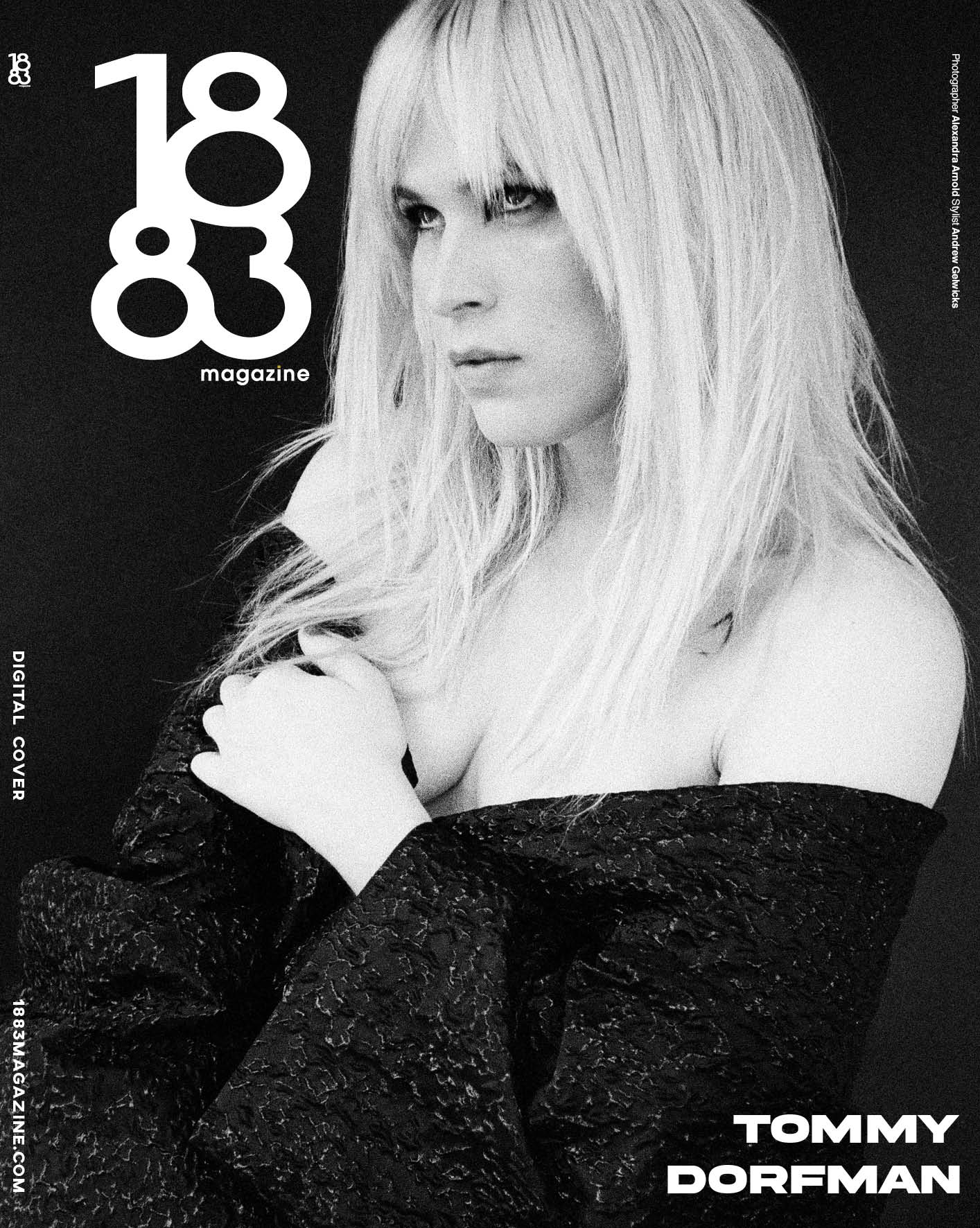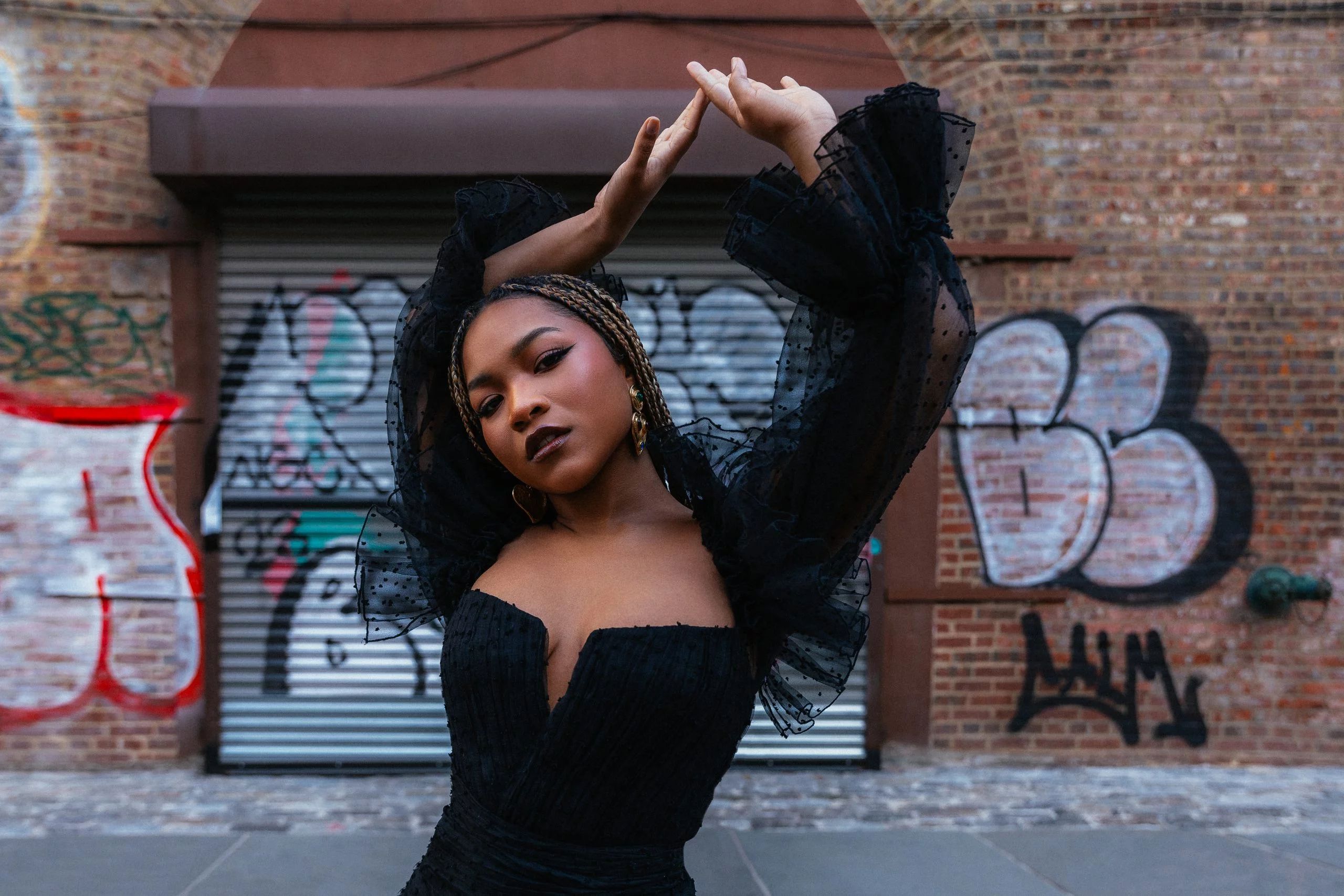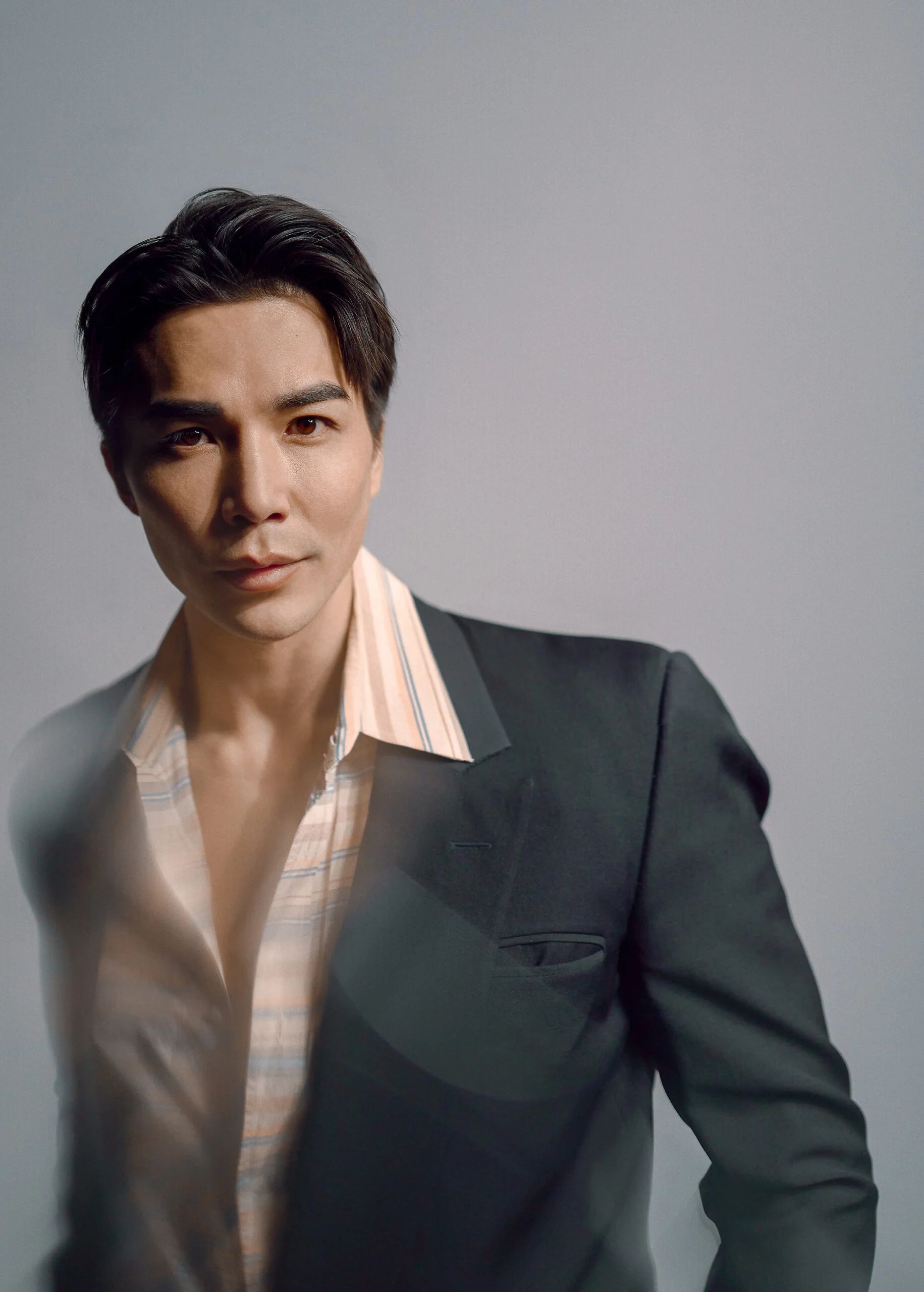
Ludi Lin
No novice to Hollywood’s blockbuster action films line up, Ludi Lin retains a remarkably modest demeanor amid his growing catalog of superhero roles; in 2017 Lin portrayed Zack, the Black Ranger, in the Power Rangers movie, followed by Murk in the 2018 rendition of DC Comic’s Aquaman, and now Shaolin Monk Liu Kang in the hotly anticipated martial arts tournament, Mortal Kombat.
Based on the massively successful video game franchise, the new film is a reboot to the Mortal Kombat film series, and will simultaneously show in movie theatres and HBO max. To familiarize himself with Kang’s characteristics and devastating warrior -ism’s, Ludi spent months playing the video game—only as Kang— from pre-production, till the end of filming.
Born in Fuzhou, China, much of Lin’s youth was spent in Australia, where he attended boarding school. His school boy years were a metaphoric Mortal Kombat-style marathon of its own, as he was often targeted by bullies and, on his own, relentlessly fought back against his tormentors. Perhaps it was these formative years that instilled the warrior-like spirit that he nimbly exudes on-screen.
While Lin’s face may not be as recognizable as the fictional characters that he brings to life, the gravitas of his on-screen charisma is complemented by the depth and cerebrality of his off-screen persona. If Lin weren’t a big-budget film star, he could very well have answered a calling in philosophy, as casual conversations with him seamlessly transform to more intelligent introspections on life’s less obvious lessons. Coupled with his career in cinema and television are his undergraduate studies and degree in Dietetics and medicine, both of which are skillfully sharpened by his devotion to martial arts and Jiu-Jitsu. And yet, the dexterity of Lin’s physical strength parallels his intellectual prowess: during interviews he unwittingly answers personal questions in a way that gives reflective insight to the interviewer.
Amid filming the upcoming Kung Fu series set to premiere on the CW this year, Lin had a candid chat with 1883 about his past hurdles, present colossal scale film projects, and the expansive future of Asian representation in Hollywood.
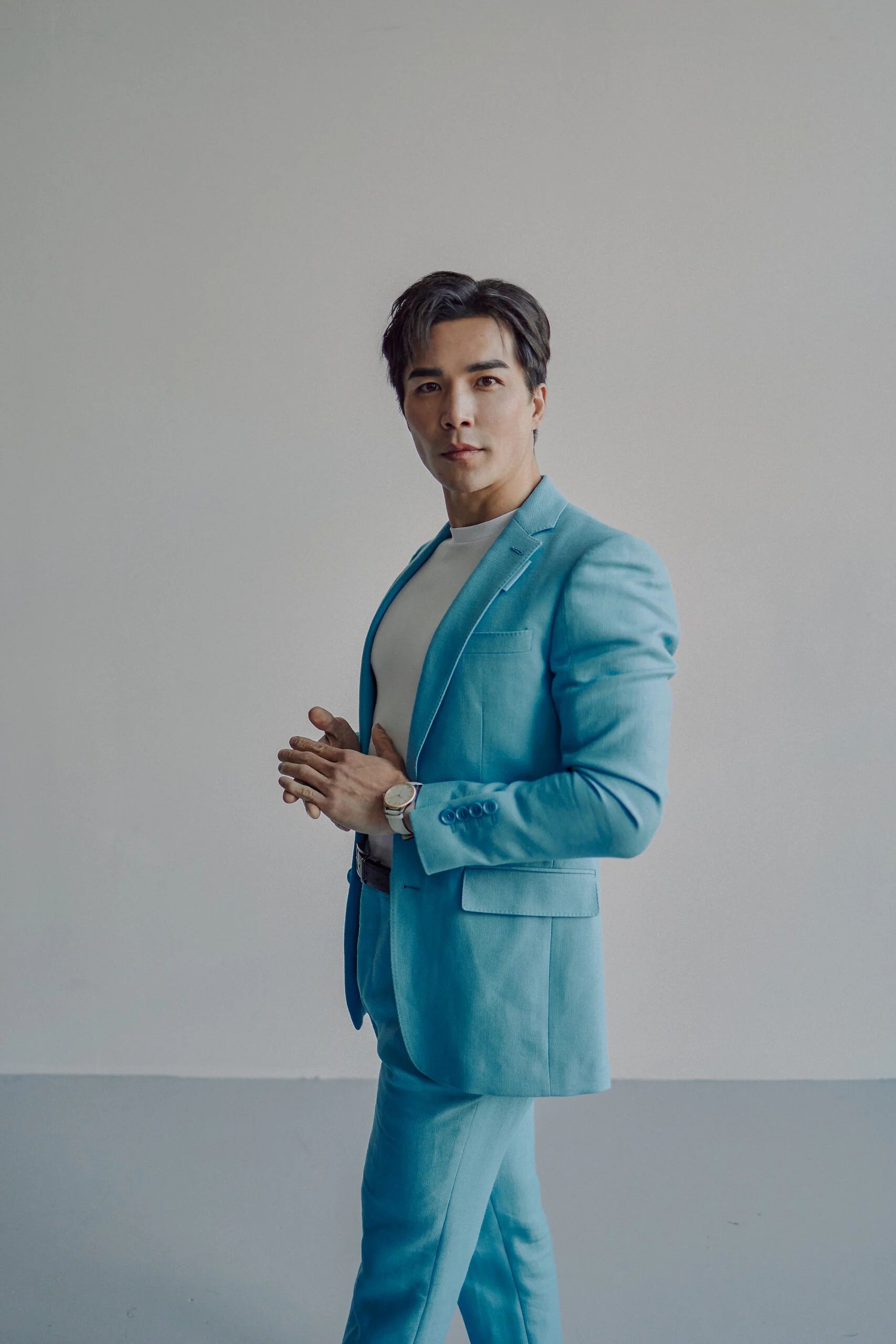
You have an interesting background— I read that you majored in Dietetics and medicine at University. How have these studies impacted, or inspired your choice in cinema work?
That’s an interesting question. I haven’t figured out a way to stop eating yet, so I guess it affects every aspect of my life. In terms of work, it gives me the room to make life a lot simpler. Over the years, I’ve become less meat dependent, and I’ve been vegan for the last 5 years…It simplifies my life. It [veganism] really started when I began prepping for Aquaman— we filmed in Australia, and on the Gold Coast, there were these whales that I got to swing with every day…And I found out that humpback whales were the first species that humans noticed that they actually communicate. They were more sentient than we had originally thought. Being with them in the water, they have their own community and family.…and when we talk about human rights, I don’t know why we don’t talk about the rights of all sentient beings…So I started being vegan. You were talking about food [dietetics], and it affected me in other ways. Like this latest role in Mortal Kombat, I feel like Liu Kang, as a Shalin monk from Mongolia, they live vegan as well. So it kind of plays into the character, and into his whole being.
It sounds to me, from the roles that you’ve portrayed, that there are plenty of parallels between you and the characters that you portray in terms of lifestyle. For instance, you’re a master of Jiu-Jitsu and martial arts— you’re a martial arts expert…
I would say, you’re always a student of martial arts. But I love it, and I embrace it— both the martial aspect and the arts aspect. I think it’s useful in life, and you can go as deep as you want, or as shallow as you want. But just know that if you don’t go in very deeply, and become adept at it, then you might get into a little trouble, because they say, “if you don’t know any martial arts, you’re fine; if you know a lot of martial arts, you’re fine”. It’s when you know a little bit of martial arts is when you get in trouble. In that aspect, drawing as many parallels between me and the roles that I play makes it more real for me, and I think the performance is better that way…When I first started acting, I thought differently…I thought it would be great to be just another person, but as it turns out, identity theft is a crime, so I just have to be myself most of the time.
That’s true. [Laughter]. You’re part of the upcoming Kung Fu. Are you filming right now, or was it already filmed?
We’re filming right now.
Liu Kang’s character was inspired by the legendary Bruce Lee. I know you watched a lot of video games in the months leading up to the role, but did you study or reference any Bruce Lee performances when preparing for this role?
Liu Kang was actually an amalgam of different legendary Kung Fu icons. John Tobias first envisioned the character as a hybrid between Bruce Lee and a monk, inspired by the martial artist and actor Gordon Kang in the 36th Chamber of Shaolin. Rather than digging into any of Bruce’s performances in particular, I drew inspiration from him and added my own interpretation to the character.
Liu Kang is the primary protagonist, not only in the Mortal Kombat universe, but in many adaptations. How did you distinguish your depiction of Liu Kang from all of the previous ones?
I thought of each rendition of Mortal Kombat as a revolution in the karmic wheel. In each iteration, Liu Kang has been the heart of Mortal Kombat, providing conscience, purity, and light as the Chosen One to lead Earth’s Champions. I don’t believe in fixing what’s not broken, and didn’t want to infringe upon that indelible aspect of him. From there I tied as many personal aspects of myself to him because the most thrilling performances for me are the ones that represent a meeting of the minds between me and the character. Because he’s a monk, he avoids killing animals for food. I’ve been vegan for years and have proven that you can be fit and powerful without eating meat…One superpower I always dreamed of having is the ability to talk and morph into animals. In Inner Mongolia, the Mongolian Wolf is a totemic animal. As an orphan child, Liu Kang is perpetually the lone wolf. He found his pack in the champions he gathered…There are so many of these details that I imbue with Liu Kang and then during the course of our journey that he returns in the end that it makes me feel fortunate to be an actor because it’s a continuing source of self-actualization.
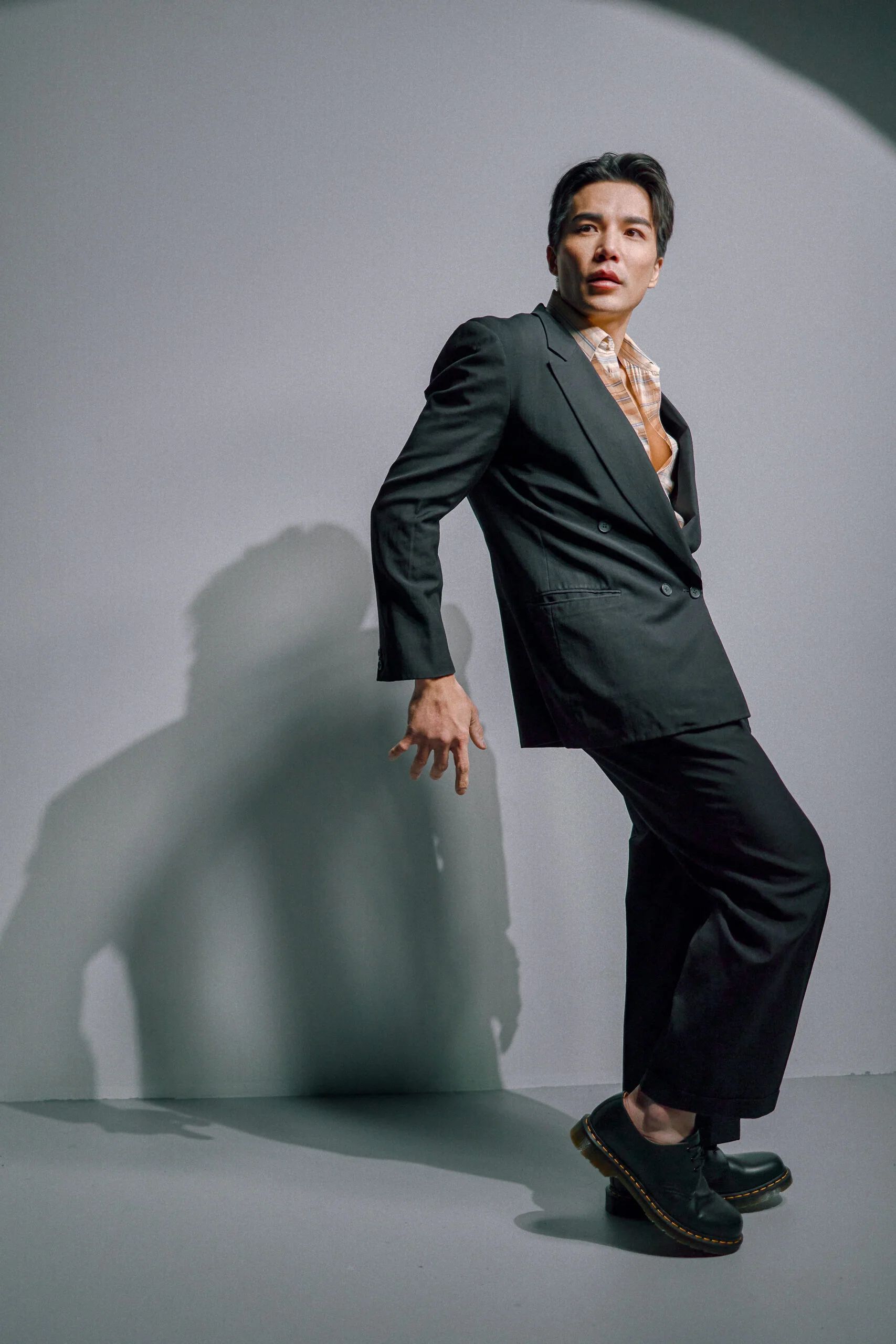
One of the traits that most stuck out to me about Liu Kang was the loud noises he would make when kicking his opponent’s ass. After—or even while—portraying the role, did you find yourself subconsciously taking on any of Liu Kang’s-isms?
[Laughter]. This is an issue we struggled with. It is an iconic eruption of noise that Liu Kang inherited from Bruce Lee. It’s almost as iconic as Michael Jackson’s elated whoops as he’s dancing. In the end, during filming we did both versions. As for whether I took it on in my personally…no, I don’t yelp spontaneously when I’m cooking or in the shower…very often.
What are you most excited about in this new release?
I’m most excited to see the fan’s reactions to it. That really completes my work and touches me the deepest.
You filmed Mortal Kombat in 2020. How do you prepare yourself to step into such labor-intensive, physically rigorous roles? Even if it’s mental/spiritual preparation, not just the physical.
My processes have changed a lot— it might vary with each role. For example, with Mortal Kombat, it’s the first time that I played so many video games to prepare for a role. I haven’t played an arcade machine in years, and then for Mortal Kombat, I played Mortal Kombat for months before I started [filming]. The video game character I played was Liu Kang…Physically, I’m not as meticulous anymore with dietary things and work out things. There was a phase in my life when I first started working out and dieting, and I really felt that I needed everything to be very specific and regimented…But over time, I think that’s less necessary…Once you get the hang of something, you can trust your body to do its thing, and I just point my head in that direction…Almost subconsciously things in my life would change without me noticing much of it, and then the results would just show itself…I think that goes with everything…Also, like you said, drawing parallels between me and the character, and also taking heed of how they would perceive things…I sometimes get to a point where I dream that I’m the character. This whole pandemic, dreams have been a big aspect for me.
How have your dreams been throughout the pandemic? Like, what did you dream about last night, if you want to share.
Are you having those [strange dreams]. Is that what’s happening here. [Laughter].
Since the start of the pandemic, I’ve been having strange dreams, but I think that’s because my line of work— designing and writing— kept my lifestyle extremely social pre-pandemic. Lockdown and confinement have drastically minimized the number of new people I engage with, how I engage with them, and how often these meetings happen. Since I’m rarely meeting new people with whom I have a continued engagement, I mostly dream about people from my past, like 15 years ago. I don’t see many new faces, mostly older faces from a mental catalogue in my past.
That’s interesting. I think dreams say a lot. So when you’re dreaming, you’re dreaming about people from your past, that you’ve seen and touched, physically?
Yes, mostly from my past.
That is interesting…I’ve been having some really vivid, and mad dreams, and I know that they do mean something…The other day, I had a really intense dream, and I don’t know if it has to do with work. Sometimes, I don’t if in the dream I’m performing, or whether I’m going through it…I had a dream [recently] about some art sucking vampires— like I had to confront these vampires that suck pieces of art out of artists.
That’s quite theatrical!
The best show on earth, at points. I can’t wait to go to sleep to see what’s going to happen at night. I’m in dread, because I know that I’ll wake up being really, really tired from working at night!
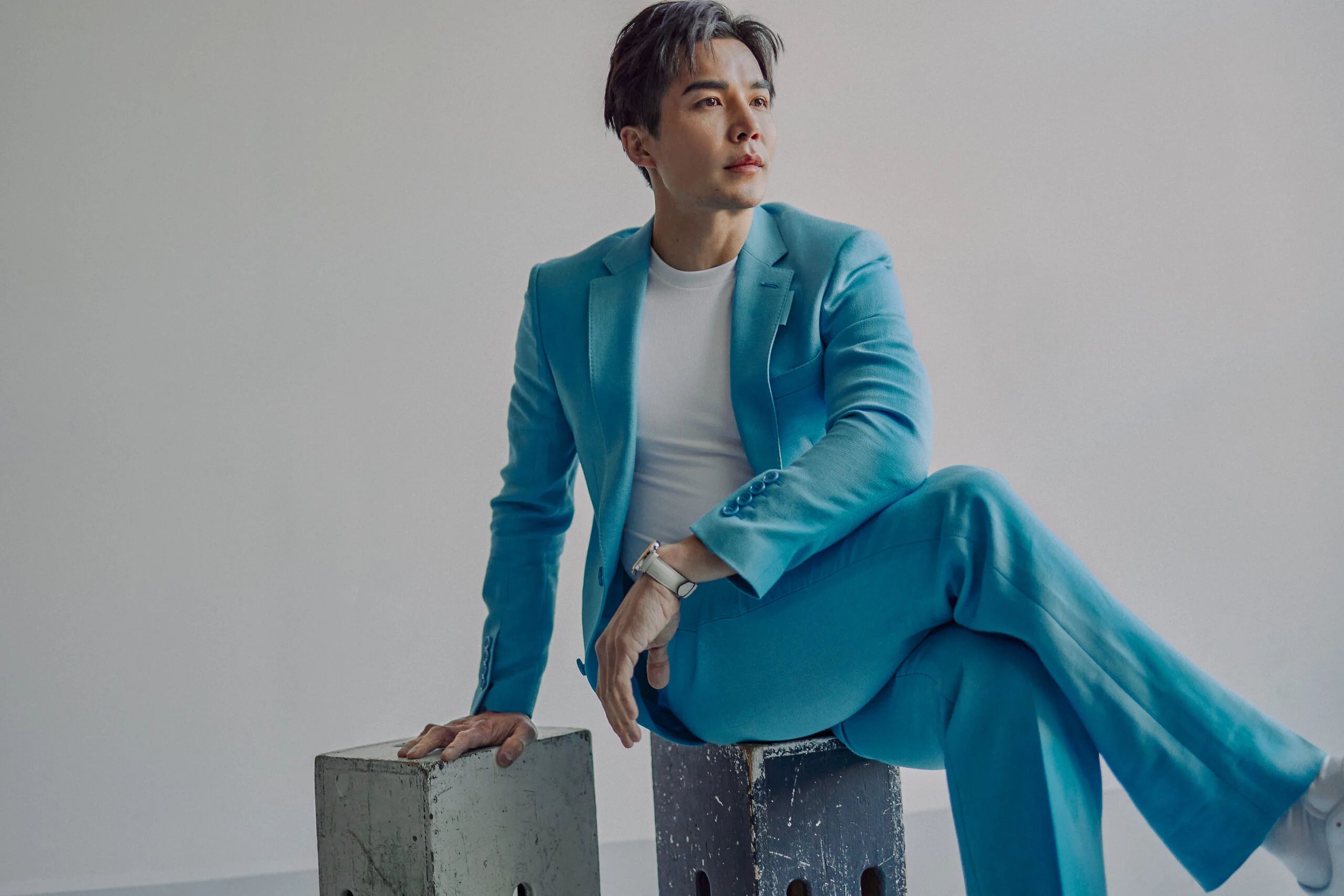
Of all the films we’ve just discussed— Kung Fu, Mortal Kombat, Aquaman, Power Rangers reboot– you really switched up your repertoire with your portrayal in Son of the South. With that film, American audiences could no longer typecast you into one genre. You enhanced our perspective of your own range. What was it about that role that attracted you, or really, what did it mean to you?
It’s really [about] personal growth. And I do a lot these big budget films, where people take a lot of notice because they’re based on a famous coming book, or some IP, or something like that. They’re really precious to a lot of people, like a childhood memory, so people get really attached to those. But things that I do outside of that— like some indie films, when I shoot in China…that actually helps me find different aspects of my culture….For Son of the South, part of my culture is that…I was born in China, but I’ve been educated— and lived— in different places in the world, and of course, each place that I come to, when I’m young, I didn’t really realize what it is. For Son of the South, I’ve learned a lot about Black representation and African American civil rights struggles throughout the years. For me, it was just called being bullied by racists, when I was a kid. Just being picked on because I was different, even though I didn’t really know why. But for me, I just needed to fight it, because I knew it wasn’t right.
So going through school, I would get into fights every day, and stand outside the principal’s office…I’d get into trouble, on the triple— first with the kids, then with the principal, and then with my mom— so it was like Mortal Kombat Round 1, 2 and 3. I never had anyone fighting on my side. The different thing about Asian Americans and Asians overseas in general, is that rather than being abused with force, our voices have been suppressed and erased [with policies]…I was not born into that, so whenever something like that happened to me, I would stand up, whereas a lot of people around me would just quiet down. So I ended up with a lot of bloody noses. But one time my teacher in grade school, Miss Watkins, told my mom, “I see Ludi coming into the principal’s office every single day, and he gets into fights almost every single day, but every time he fights, he only fights for what he thinks is right”. And that was the only time that someone stood up for me…And that really touched me. So with Son of the South, I would have done it for nothing, because what it taught me is what people had to go through to get to this point…And I think within each generation, we think that we’re so special…and it’s so hard…But the generations before you had it just as hard, even harder…I was the only Asian on the show [in the film], which was a common case in previous years— being the token Asian person. In Son of the South, I asked the director, what was going on [with the Asian presence in the movement] and I did my own research and found out that because of embargo, there was only .5% Asians in America at the time, and no one was allowed to immigrate in…So in the Civil Rights Movement, out of the entire Freedom Bus Ride name list, I could find two Asian names.
Did you contact these two people?
One has passed. The other one was hard to find because I think he was some kind of an heir to a toy conglomerate somewhere. The first person, she was amazing, and very active in the Movement, and just as fierce as anybody. I got in touch with people that knew her and knew of her. One very good friend of mine, Tzi Ma— who thought he was the only Asian Black Panther—
Asian Black Panther?! Is he in New York?
He’s actually in Kung Fu with me. He grew up in New York, and his family owned the first Chinese restaurant in Staten Island. And he gave me a lot of background on [Asian involvement in the Civil Rights Movement]. And he gave me a lot of background…I don’t think our generation talks to the people that came before us enough…They can really fill you in…and the more you know…the more everything means to you, and you understand why we’re here and why we’re at this point…For Asians— I want to say Asian people, because I don’t want to just use the moniker “Asian”…Because it’s like Asian is a brand, but Asian people—because we are a people— we got invited to the party late, because no one sent us the invitation to the American party…
You’ve been involved with several blockbuster film projects. From your experience, do you perceive that we’re in a time of greater expansion for roles/portrayals of Asian actors within Hollywood?
Over the years, America has been sharing in Asian culture, and has benefited a lot from Asian culture— we were here a long time ago, since the early 1800’s, and it wasn’t a very pleasant journey by any means. It was indentured servitude….But it was always this fear…when someone feels like the influx of another culture is changing things too much, and we need to be protective, which is fair enough, because culture is forever, but a life only lasts a lifetime. So you want to protect something forever, but guess what? Things always change…nothing ever stays the same. Nothing ever gets encroached or entrenched for too long…Errors change…Feelings change with environments and with the times. What it boils down to is that I hope from now on—because the times are changing— that feelings will change as well. This is why I want to say “Asian people” when people mention the Chinese, or China…because who exactly do you mean?…I want these feelings to start changing towards the representation of Asian culture…to not only have a more positive vibe, but a more complex vibe…We’re not just funny grocery store owners, or Kung Fu guys, we’re everything in between. And we’re happy to share, if you’ll just open up and listen.
Representation is crucial to cultural education— it’s part of societal sharing.
I’m this little Chinese boy growing up in Fuzhou, China, a city that not many people have heard about. But never in my life…would I have imagined to be learning about Civil Rights history in Montgomery, Alabama. My little kid self would go, “Where’s that?”…So, being down there…even so, there were Chinese restaurants. There’s a very good Chinese restaurant and a very good Korean restaurant. Some of the food was different— it was Southern. But it was there, and the culture was being shared, and so…I just hope that more people can enjoy the culture, and actually enjoy the culture coming from people who have lived the culture, authentically. As an actor, it’s a very hard debate in my head about what is “cultural appropriation”, because in a way, I like that culture is meant to be shared. So what’s the difference between sharing something, and appropriating something? Basically, it is authenticity and credit, to me.
Exactly. And when it’s not appropriation, it means that you are actually crediting the people who inspired whatever it is that you’re doing. It becomes appropriation when the people who gave the inspiration are not being acknowledged, or credited as a people for the cultural contribution. So I totally agree with you.
Yeah. I think you understand this completely, because African culture, African American culture, Black culture, Asian culture, it’s so much more nuanced than what you think it is. It’s not just a McDonald-ized one combo fits all, sort of thing. China alone is made up of 50 different minorities, and there are 500-something dialects, so when you say “Chinese food”, what do you mean?…Wouldn’t you try to enjoy each little different thing from each part of China and try to enjoy it? Spices from the South, or the barbecue from the North…As an actor, I want to be able to say that I can just put on a hat and be that person, but really, in some ways you can’t. And that’s how my perspective towards acting and my craft has evolved over the years…To be a role, and to be it authentically, you really have to share as much with that role as possible.
Can we expect more anomalous film roles as your portrayal in Son of the South from you in the future? Your portrayal in Son of the South is quite an anomaly compares with the roles within the rest of your catalog.
I don’t think that’s even a choice. I think it’s inevitable, and it must be that way. I’ve never set a home base anywhere since 10 years back, because I moved to Beijing and started my film career there, so a lot of the roles that I do in China are not known in North America— I’m still trying to build that bridge between the two…I don’t have a home base because I go wherever the work is— Malaysia, Singapore, Australia, Canada, the States, or China…Culture is a double edged sward; it can separate you into different races and nationalities, or it can bridge you…With these roles, it gives me an understanding of what went soon behind the history of these places and people, so I can connect with them better. I love these roles. Before I did Son of the South, in China I went to the Szechuan Province where all of the great spicy food comes from, and I took on the role of an overweight, out of shape, retired soldier father and had to learn the Szechuan dialect, which is a unique dialect in itself…I love to do roles for fan service, which is the roles that fans love, because I get to enjoy it.
And what is it like for you, being such an integral part within a production?
You know, in a film you start with yourself, and then you broaden out to the director and the cast, and then the whole crew. It’s like a conspiracy that grows. At first, you only know who you are, and then the role you’re playing, and then with the director it’s a communication between you two, and then the cast [you work together]…And when it blossoms to the audience, it’s really like a mass conspiracy. And everyone enjoys in this thing. That’s why movie theaters are so special…Some films are like that, and some films are more selfish— like for my own personal growth to understand what Asian representation really means, and what racial presentation really means, and what the relationship is between Asian people and Black people in America, and how that went hand in hand together. And what does equality mean, and what does equity mean…We are guided and instructed by history. In the scope of all of that— from what I learned in the film [Son of the South], and what happened in America within the last four or five years— it totally makes sense in the swing of history…this pendulum, back and forth— the Civil War, another swing, the Jim Crow era, another swing, Civil Rights, another swing, then Obama another swing, and Trump, just another swing. And hopefully, this is our time in this round to take another swing back. I just hope that the Asian people will be here for the fight this time.
Because you’re here, at the party. You know, you’re at the party.
We’re at the party, and we’re ready to party.
You know, I’ve watched previous interviews with you, and you’ve said a few things that really resonate with me. You said, “there’s a lot of value in disappointment”, and you advised to “love the way that you suck at something”, as a means of getting better at it. Now, what’s a third nugget of wisdom that you can share with your fanbase?
People around me—especially women around me— have taught me a lot recently…One thing I learned is validation; it’s not only that you should explain your meaning and your intentions. You should also recognize the effect that you are having on some people. It doesn’t matter if you agree with it, or not— it is the effect that it’s having on them…I don’t know if this applies to acting, but sometimes, I’m so stuck on an idea of how [something] is portrayed, but it might not give that effect on people. And I think think the work of art is completed when the audience sees it, so it does have that effect on people. So I do take that into account…and I do recognize that that’s part of my responsibility as well…One other thing is– I just learned this from Bilie Eilish— she said, “When somebody misses, they don’t really miss me, they just want to talk to me so they don’t miss me anymore. They want that hurt to go away. But I don’t want that— I want them to miss me, I want it to hurt, because when I’m away, it’s supposed to hurt. Why do you need to make hurt feel better?”…What I learned from that is, sometimes a feeling is just a feeling, and if it hurts, it hurts. It’s like disappointment has value because sometimes disappointment hurts as well. And just let it hurt, and seep in it, and know that it’s okay. When it hurts, it’s supposed to mean something. I think people get in trouble when that feeling stirs up another feeling, and all of the feelings get confused…It [becomes] a never ending spiral.
Interesting. What resonated most with me of all, is when you said “the work/your art is complete, once the viewer sees it”. As a designer and writer, I can relate because I believed— till now— that no work of art is ever complete— there’s always room for adjustments or tweaks. Your words inspired me to consider all works complete upon arrival into the market—whether it be one of products bag within the boutique, or an article posted for the readership. And as artists, that’s a necessary detachment. So thank you for this wisdom.
Well, Victory, you just gave me back some wisdom…I think that’s how I get insight— it’s not just me, it’s team work.
Mortal Kombat is out Friday 16th April in cinemas and on HBO Max.
Interview Constance Victory
Photographer Evaan Kheraj
Stylist Sarah D’Arcey
Grooming Yulanda Li
[embedyt] https://www.youtube.com/watch?v=-BQPKD7eozY[/embedyt]



